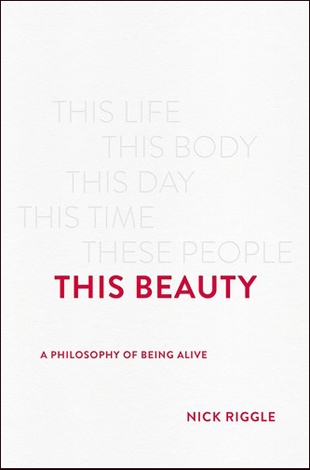The message of this book is both simple and necessary. We miss this obvious truth all the time: life is beautiful. Our experience of living often obscures our vision, and we can’t see clearly the beauty of what is around us. And then we forget to express the beauty in our lives.
Nick Riggle is a professor of philosophy at the University of San Diego — but to mention only that credential would be to misjudge him as an author and mislead readers about what they will find in this book. Riggle was once a high school dropout who became a famous professional rollerblade skater, competing in various national and world competitions. In an earlier book, called On Being Awesome (2017), he told his story of personal transformation, how he went back to school and eventually earned a PhD. Not a typical scholar, Riggle has seen life from many vantage points.
He writes at times as a spiritual guru might do, for instance, in the opening paragraph on page 1:
“One day I sort of woke up and found myself here. Not here, writing this book, right here and now. But here. In the biggest sense. Here on planet Earth. With a beating heart. With a warm, animate body. Consciousness alight. Time ticking. I had been alive for a while. All of a sudden I was awake.”
We thought immediately of some of our favorite spiritual teachers of the last generation, for instance, Ram Dass. And, like Baba Ram Dass, Nick Riggle is not for everyone. For instance, Riggle uses language that would be considered crass or profane by some readers, but he does this to speak frankly and honestly about his path to awakening and gratitude.
Riggle doesn’t refer to Ram Dass, but he does quote many recent poets and philosophers — including Billy Collins, bell hooks, Leonard Cohen, Alan Watts, and Mary Oliver; plus a handful of classic philosophers such as Plato, Schopenhauer, Nietzsche, and Wittgenstein.
Riggle says, “I have lived enough to know this: you will spend much of your life just trying to survive, trying to do well for yourself, for your job or career, your family, your children, and your friends. And this struggle will force you into fixed routines and relations that work for you, that keep you healthy, safe, and sane…. But as much as you need such control over your life, living this way can be stifling, boring, all too routine.” He wants to help you find the “aesthetic value” of living, which means cultivating a better sense of what’s worth your time and attention, and finding your own individuality (“loving this rather than that”).
He praises the uniqueness of some famous “individuals” in the excerpt accompanying this review. For adult readers who are not easily offended, we highly recommend this book.
